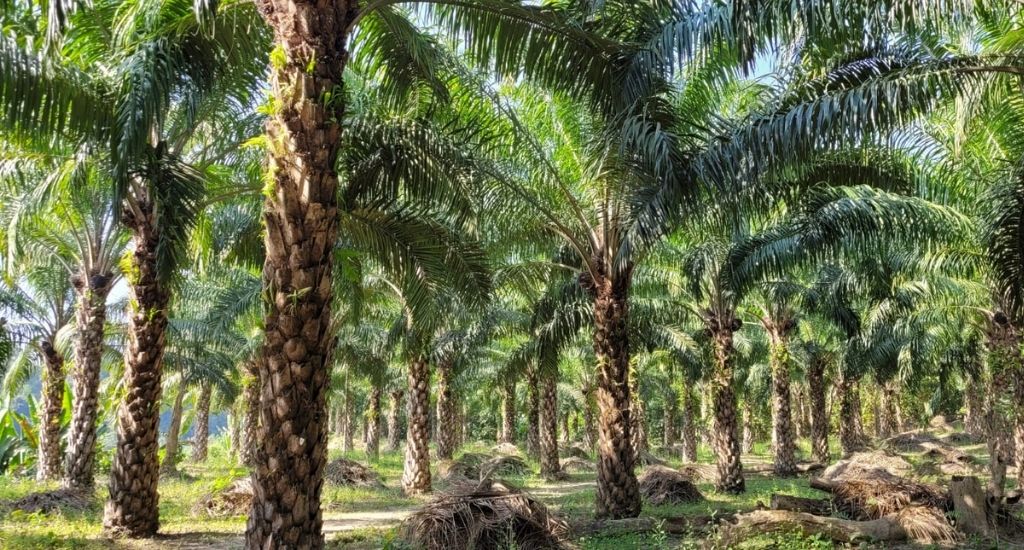
Why farmers in Mizoram quit oil palm cultivation
Amidst claims of oil palm cultivation being disastrous for the environment, lack of transportation facilities and inadequate water supply have been forcing farmers to switch to other crops.

Amidst claims of oil palm cultivation being disastrous for the environment, lack of transportation facilities and inadequate water supply have been forcing farmers to switch to other crops.
Lalrampana has been an oil palm farmer in Rengtekawn village in Kolasib district of Mizoram for the past decade.
The 51-year-old farmer has 160 trees spread across one hectare of land where he has been doing oil palm cultivation since 2011. He also cultivates areca nuts in the same land as an intercrop.
Though oil palm cultivation has the potential to bring good revenue for the farmers, many challenges plague them.
Lalrampana earns Rs 20,000-30,000 profit every year through oil palm cultivation. But the income could be manifold if the roads were good.
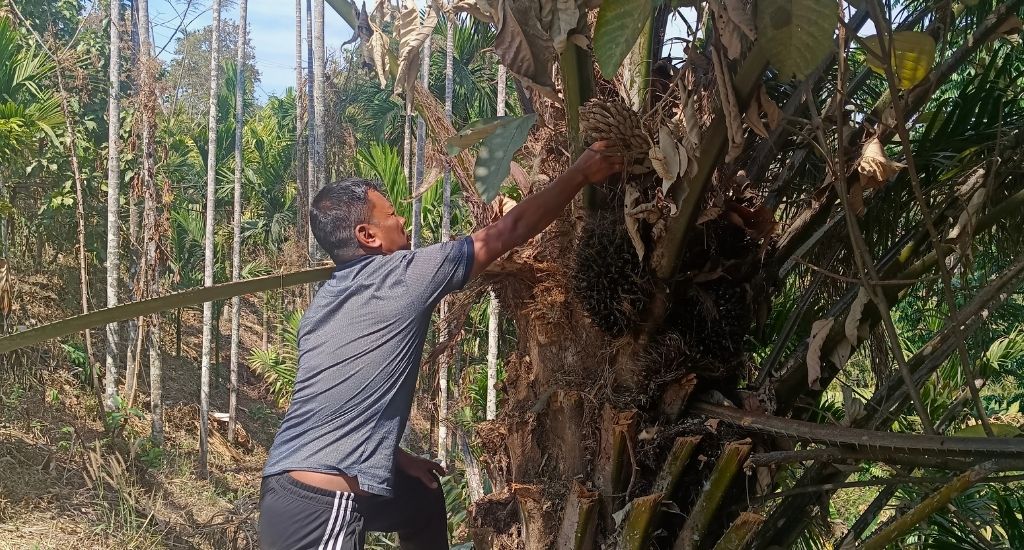
“Oil palm fetches a good price and it doesn’t need much care. But the major problem is transporting the produce to the factories for sale, as we live in hilly terrain and the villages are located in remote areas,” he told Village Square. “Because of this several farmers are forced to quit oil palm cultivation.”
Situated at a distance of 80 kilometres from Aizawl, the state capital, the village has 32 farmers cultivating oil palm. Almost all of them blame inadequate transportation for suffering losses.
Lalthang Fala, 59, a farmer in Rengtekawn produces around 5 tonnes of oil palm fruit annually.
He sells the fruit to Godrej Agrovet, a company that produces palm oil, in Kolasib district at Rs 10 per kg. But most of the income is spent on transportation.
According to the state agriculture department, when oil palm cultivation began in 2005 in Mizoram, 10,843 farmers across seven districts were involved.
However, only 738 farmers sold the fruit to two companies – Godrej Agrovet and Patanjali foods – between November last year and this January.
“Farmers find it difficult to bring the produce to the factories because of transportation issues,” R. Vanlalchhuanga, deputy director (oil palm), the state agriculture department, told Village Square.
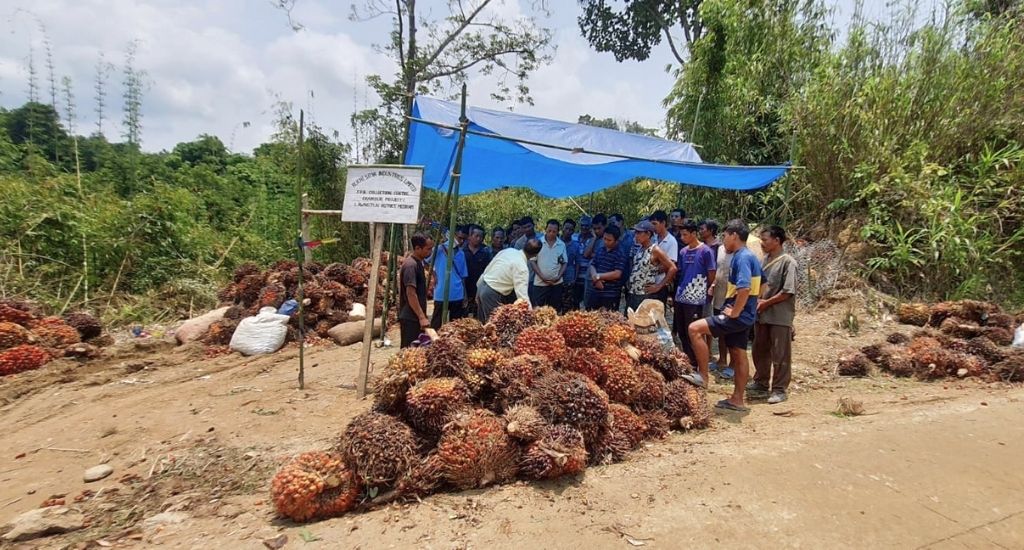
He further pointed out that the state government has been trying its best to connect the remote areas but constructing the roads is a costly affair.
However, farmers cite the lack of water as another reason that forced many to switch to other crops.
“Rainfall has become erratic. So we depend on streams, but the water is still not enough for crops,” said Fala. “The labour and transportation costs eat into our income.”
Several farmers across the state are facing the same predicament which forces them to switch to other crops.
The state, however, is witnessing a steady rise in oil palm production but the lack of proper facilities has been keeping the farmers away from selling the produce.
As per the agriculture department, the production of oil palm stood at 4,600 metric tonnes (MT) in 2019-20 which rose to 4,903 MT and 5,358 MT in the next two years.
Mizoram has a geographical area of 21.09 lakh hectares out of which 66,791 hectares have the potential for oil palm cultivation. But at present oil palm is cultivated in less than 3% of this area.
Vanlalchhuanga pointed out that the state government has been making all efforts to promote oil palm cultivation in the state.
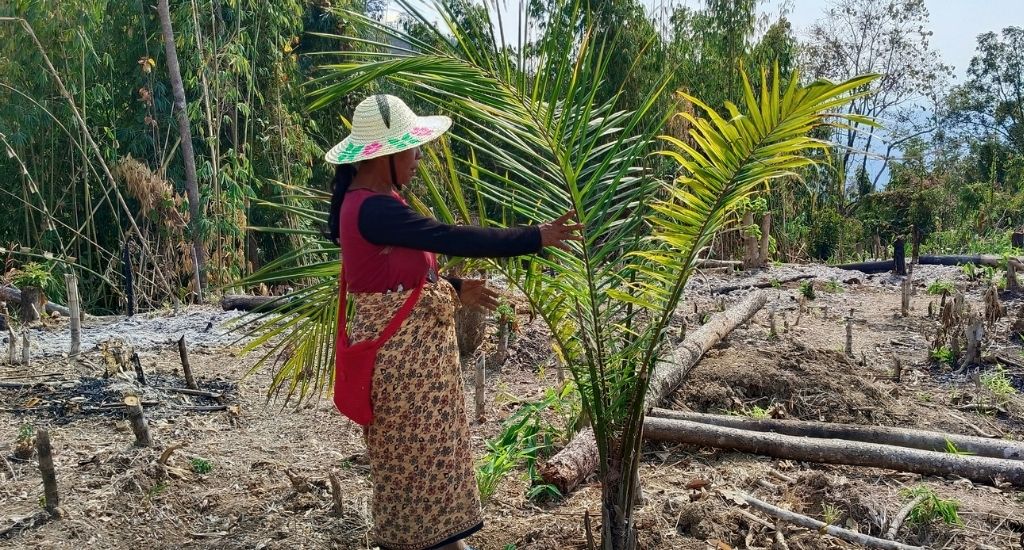
“The government assists the farmers during the first four years since the trees start bearing fruits in the fifth year. We provide free seedlings, free transportation to their fields and Rs 5,000 per hectare financial assistance for field maintenance,” he said. “Our farming is rain-fed and farmers store water for future use but the rains have been less this year, leading to worries among them.”
Though the number of farmers has reduced, oil palm is proving to be profitable for farmers whose fields have good road connectivity.
Lalnunziri, 58, a woman farmer in Dumluizau village in Kolasib district earns Rs 30,000 per month by selling 3 tonnes of the produce to the factory located just 6 km from her farm.
She has also made a water tank to ensure a regular supply of water to her oil palm trees.
“I ventured into oil palm farming in 2016. I have been making good profits since 2021. I produced around 30 quintals recently which I sold for Rs 10 per kg to the company,” she said. “I have purchased another land and will soon start farming there.”
Environmentalists say that oil palm farming has been destroying biodiversity.
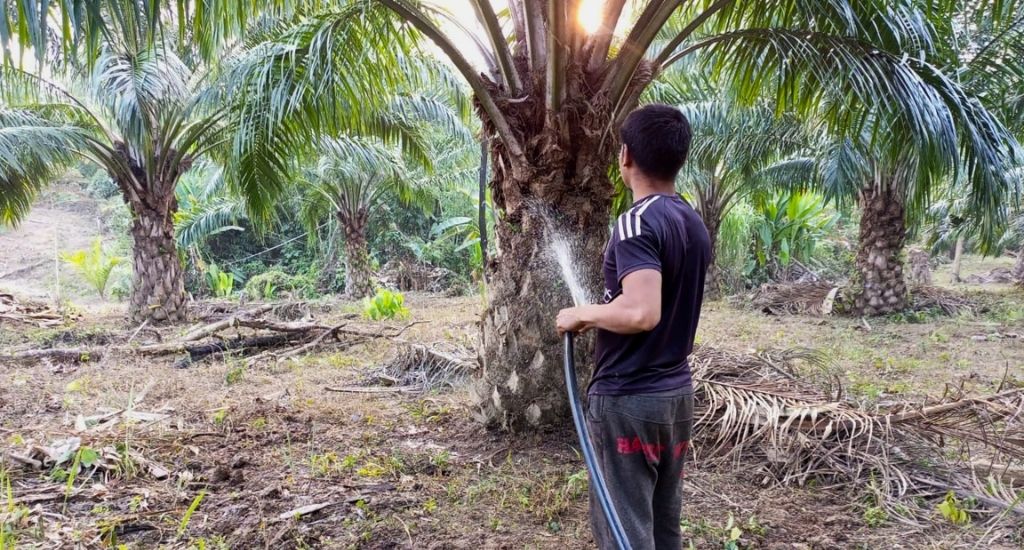
“Oil palm farming has been badly affecting the groundwater and draining out water resources. It is causing immense damage to the flora and fauna of the state. Oil palm is a water-guzzling monoculture crop with a long gestation period of four years which makes it unsuitable for farmers,” pointed out A.C. Zonunmawia, founder of Centre for Environment Protection, a non-profit organisation working on environment issues in Mizoram.
“Most of the farmers find it difficult to shift to other crops as the branches and stems are sturdy and require a lot of expenses to be chopped off. They cannot be uprooted easily. It is a loss-making affair for the farmers,” he said.
Senior agriculture department officials said that a team has been set up to do the investigation regarding claims about the environmental impact.
“We have been hearing rumours about the environmental destruction being caused by oil palm cultivation. We have set up a team comprising officials from various government departments to find out whether it is having an effect on the environment or not,” James Lalsiamliana, director of agriculture, Mizoram, told Village Square.
The lead image at the top shows oil palm trees in Mizoram (Photo by Gurvinder Singh)
Gurvinder Singh is a journalist based in Kolkata.